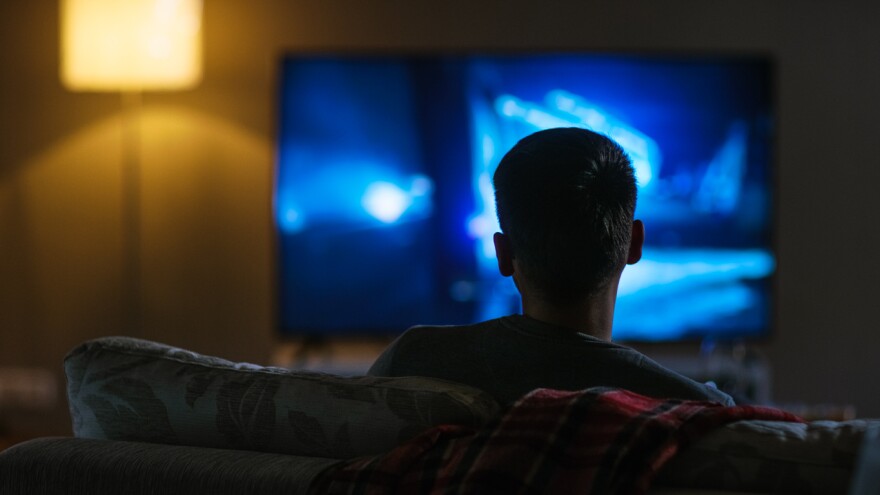2020 has been a year full of fear and anxiety for many people. The coronavirus pandemic brought a new disease and sweeping changes to society. People have to avoid large gatherings, limit social interactions and find different ways to take care of those who have gotten sick.
It all adds to the stress and anxiety they may already have in their everyday lives, said Doran Williams, an associate director and licensed clinical social worker at Wasatch Behavioral Health.
“As human beings, we try to find homeostasis in our lives and some normality,” Williams said. “This year, it's been hard to do that because of everything going on.”
On top of that, the political environment has become more divisive and contentious. It’s easier than ever to stay up-to-date on the news cycle, but negative political ads are everywhere, Williams said. And many are more focused on personal attacks rather than the issues.
There are ways, however, to manage the stress.
What can people do to address their stress?
Williams said one of the most helpful things people can do is reach out to people they know and trust to talk about the anxiety and stress they might be feeling. Humans need social interactions, he said, and being able to talk through negative feelings — and be listened to — is one of the best ways to not only calm them but connect with others, even if the pandemic has made it harder.
He suggested meeting up with people outside, wearing a mask and keeping physical distance guidelines in mind. People can also spend time together over the internet, playing a game with friends over Zoom or video chatting with family members.
“Yes, we need to remain physically distanced from each other,” he said. “But there’s ways to connect.”
Christina Kelly LeCluyse, a clinical social worker at the University of Utah Counseling Center, also said it’s important people make time for activities that help them relax, like reading, exercising, going for a walk or meditating.
She said mindfulness and deep breathing exercises are particularly good because they help people pay attention to what they are feeling and what their bodies need. Once someone recognizes and confronts negative emotions, they can then make some decisions on what they need to do to cope with them.
What should people avoid doing?
Williams said a common strategy to cope with stress and anxiety is to use alcohol or drugs. They might provide a short term mood boost, but in the long run will do more harm than good.
Instead, Williams said, people need to take time to process their feelings and adjust accordingly. And there isn’t really a quick way around that.
He also said while it’s helpful for people to know what’s going on and have accurate, reliable sources of information, it’s important to avoid “doom scrolling,” which can amplify negative feelings, and to be selective with what news and social media someone takes in.
LeCluyse recommended possibly dedicating a certain amount each day to getting caught up and then turning it off.
She said people also shouldn’t worry too much about things they can’t control. No one person can solve the pandemic, nor how others react to it. They also can’t control what happens after the election. But they can make sure they’re following the guidelines recommended by health experts to avoid spreading the disease, vote and make sure they’re taking care of themselves.
How should people tackle difficult conversations?
It can be difficult to have conversations with people with different viewpoints, especially if the differences are political. Williams said political divisions and the personal attacks that follow have made it harder for people to talk about issues without devolving into fights.
But it’s important to remember that people can have differing opinions and still get along, Williams said. The key is to talk about an issue without attacking the other person and remember the golden rule: treat people the way you want to be treated.
“No matter whether it’s the election or something else, we’ll always disagree,” he said. “We’re different people, different experiences. That's OK. But hopefully the friendship and the relationship outweighs and outlast all the chaos that's going on.”
LeCluyse added that respect is key to keeping conversations civil.
“Difference doesn't have to be seen as a threat,” she said.” Difference can be seen as something in which we could be curious about, in which we could try to understand more from the other person's point of view.”
She said when people start to become defensive, that's when things can unravel.
Plus, if Ruth Bader Ginsburg and Antonin Scalia — U.S. Supreme Court justices on opposite ends of the political spectrum — could be friends despite their disagreements, Williams said others can too.
What other resources are available?
For those who might need help beyond the individual strategies mentioned, there are other resources available.
There are crisis hotlines such as the Utah Crisis Line 1-800-273-TALK (8255), which can provide things like emotional support, suicide prevention services and first responder assistance. They are available to anyone going through a hard time. Calling 211 can also help connect people with specific services near them, some of which the Utah Department of Human Services broke down by county.
Colleges and universities also offer students and staff resources and strategies, too, including individual counseling, mindfulness classes, and apps to help manage stress.
The final thing to remember, Williams said, is that while this is a difficult time, it will eventually pass.
“If you look back in our history, we will go on,” he said. “We've conquered and gone through many, many things in this world. And this is just a stopping point along the way.”






